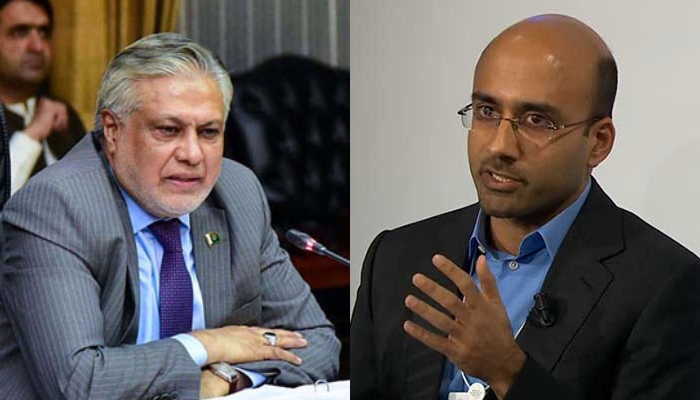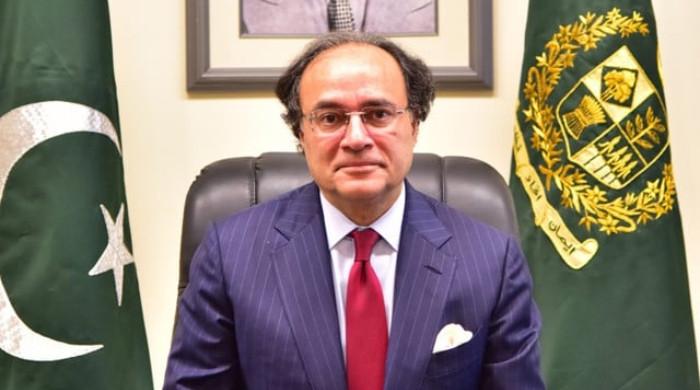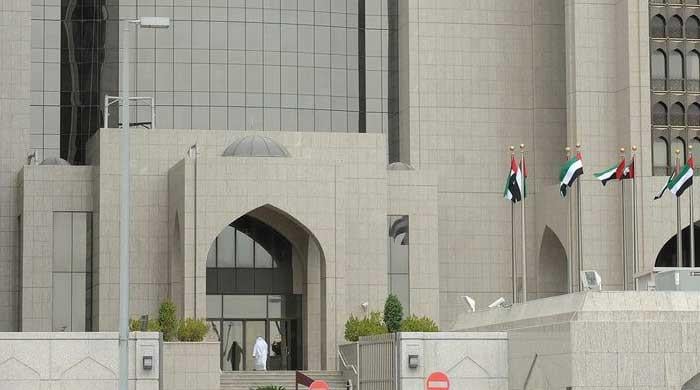Pakistan says Atif Mian has 'no idea' how 'practical economics operates'
Ministry believes Atif Mian made a “veiled suggestion” for Pakistan to “declare default”
May 27, 2023

- Ministry says Atif Mian's misplaced criticism purely theoretical.
- Asserts Mian ignored deep-rooted reforms taken by Pakistan.
- Says he's unaware of unprecedented political challenges.
The Finance Ministry on Saturday rebutted economist Atif Mian, claiming that he has “no idea” how “practical economics operates in practice”.
Mian, in a series of tweets, called on Pakistan to “take decisive actions, aggressively restructure and take courageous actions”.
He also stated that Pakistan was making “non-sensical policy choices” as he compared the country with Ghana and Sri Lanka.
However, the ministry believes that the Princeton economist had made a “veiled suggestion” for Pakistan to “declare default”.
“This is a misplaced criticism made from a purely theoretical point of view. The gentleman has no idea how the practical economics operates in practice. His comparison with Ghana and Sri Lanka, is also misplaced given the incomparably small size of their economies and populations relative to Pakistan,” said the ministry in a two-page rebuttal.
According to the rebuttal, it was stated that Mian did not care to “analyse” the structure of Pakistan’s debt which it stated was less than 10% in commercial bonds/sukuks and with the next maturity falling due in April 2024.
“The rest of the debt is owed to the multilateral and bilateral creditors. Both these classes of creditors are engaged with Pakistan and none has assessed that Pakistan should default,” said the ministry.
The ministry further contended that the economist has “completely ignored the deep-rooted reforms Pakistan has undertaken in the last 9 months”. The reforms cited include market exchange rate, interest rate adjustments, mid-year taxation to improve fiscal position, imposition of a levy on petroleum products and non-monetisation of fiscal deficit.
“All these actions were undertaken under an IMF program which was unprecedented as never in country’s history such front-loaded conditionality was imposed. However, we accomplished it through heroic efforts. It is unfortunate that despite such actions, the staff level agreement (SLA) has still not been reached delaying the release of 9th review tranche. The country is surviving economically and would continue to survive. What Pakistan has done is decisive and courageous; we would continue to walk the road to reforms to stabilise our economy and, in course of time, to steer it toward the path of sustainable growth,” said the ministry.
The ministry also slammed Mian for doing an “unwarranted” comparison of the nominal exchange rate. It added that Pakistan’s real exchange rate is currently estimated to be 15% undervalued.
“The nominal rate is the result of speculation, market manipulation and general distraught from political instability. The undervalued exchange rate is reflective of the fact that underlying fundamentals are improving,” said the ministry. It also added that petroleum products were being sold at a “significantly" lower price than other regional countries.
The rebuttal also contended that it was “unwise” for the government to impose an additional petroleum levy on it had already achieved a petroleum levy of Rs.50.
“The author has cited this as an example of non-sensical policies. This is simply a misplaced example,” said the ministry.
While further defending the country’s economic performance, the ministry stated that Pakistan’s economy has “suffered because of international shocks of COVID, Ukraine War and devastating floods of last summer”.
“The author is also oblivious to unprecedented political challenges faced by the country. We are not living in calm and serene times. The present situation has major repercussions for the economy. With political stability likely to emerge soon, there would be a major economic turnaround,” said the ministry.









